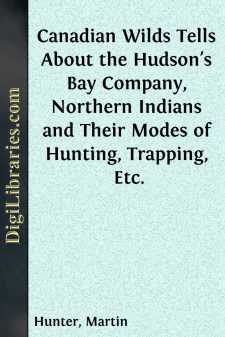Categories
- Antiques & Collectibles 13
- Architecture 36
- Art 48
- Bibles 22
- Biography & Autobiography 816
- Body, Mind & Spirit 145
- Business & Economics 28
- Children's Books 18
- Children's Fiction 14
- Computers 4
- Cooking 94
- Crafts & Hobbies 4
- Drama 346
- Education 58
- Family & Relationships 59
- Fiction 11831
- Foreign Language Study 3
- Games 19
- Gardening 17
- Health & Fitness 34
- History 1378
- House & Home 1
- Humor 147
- Juvenile Fiction 1873
- Juvenile Nonfiction 202
- Language Arts & Disciplines 89
- Law 16
- Literary Collections 686
- Literary Criticism 179
- Mathematics 13
- Medical 41
- Music 40
- Nature 179
- Non-Classifiable 1768
- Performing Arts 7
- Periodicals 1453
- Philosophy 66
- Photography 2
- Poetry 897
- Political Science 203
- Psychology 45
- Reference 154
- Religion 516
- Science 126
- Self-Help 86
- Social Science 82
- Sports & Recreation 34
- Study Aids 3
- Technology & Engineering 59
- Transportation 23
- Travel 463
- True Crime 29
Our website is made possible by displaying online advertisements to our visitors.
Please consider supporting us by disabling your ad blocker.
Canadian Wilds Tells About the Hudson's Bay Company, Northern Indians and Their Modes of Hunting, Trapping, Etc.
by: Martin Hunter
Description:
Excerpt
INTRODUCTION.
By the courtesy of Forest and Stream and Hunter-Trader-Trapper these articles are republished in book form by the author.
I have been induced to bring them out a second time under one cover by the frequent requests of my fellow bushmen who were kind enough to criticise them favorably when they first appeared in the magazine.
In this preamble I think it proper and possibly interesting to the reader to have a short synopsis of my career.
I entered the service of the Hudson's Bay Company in 1863 as a clerk and retired in 1903 a commissioned officer of twenty years' standing.
The modes of Trapping and Hunting were learned directly by personal participation in the chase with the Indians and the other stories heard first hand from the red man.
My service in the employ of the Great Fur Company extended from Labrador in the East to Fort William on Lake Superior in the West and from the valley of the St. Lawrence in the South to the headwaters of its feeders in the North.
By canoes and snowshoes I have traveled on the principal large rivers flowing south from the height of land, among them I may mention the Moisee, Bersimis, St. Maurice, Ottawa, Michipocoten, Pic and Nepigon.
I have hunted, trapped and traded with the Montagnais, Algonquins and Ojibways, the three largest tribes that inhabit the country mentioned in the foregoing boundaries and therefore the reader can place implicit reliance in what is herein set forth. Giving a synopsis of the history of The Hudson's Bay Company, its Forts and Posts and the Indians they traded with as well as other incidents of the Canadian wilds.
Respectfully,
MARTIN HUNTER.
CANADIAN WILDS.
The Hudson's Bay Company was incorporated in the year 1670 and received its charter from Charles the Second, making it today the longest united company that ever existed in the world.
In 1867 when the different provinces of old Canada were brought under the Dominion Confederation, the Company ceded its exclusive rights, as per its charter, to the government of Canada, making this vast territory over which the Company had held sway for nearly two hundred years, free for hunters, trappers and traders.
Prince Rupert, of England, was associated with the first body of "Adventurers Trading into Hudson's Bay," for such were they designated in the charter and the charter gave them the right to trade on all rivers and their tributaries flowing into Hudson's Bay.
They established their first forts or factories at the mouths of the principal rivers that fall into the bay on the east, south and west shores, such as East Main, Rupert's, Moose, Albany, Churchill and a few intermediate small outposts along the seashore. They endeavored to draw the interior Indians down to the coast to trade but after a few years they found that the long journey to the factories took up so much of the Indian's time and left them, after their return to their hunting grounds, so exhausted from their strenuous exertions in negotiating the turbulent and swift flowing waters, that the company's management decided to stretch out and establish trading places up the different rivers....


